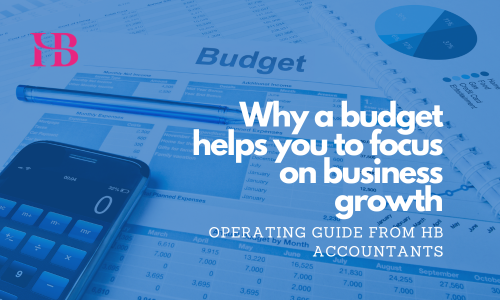The registration system used by Companies House is changing in 2025 due to the Economic Crime and Corporate Transparency Act. The changes are designed to prevent fraud and ensure that businesses are more transparent. If you are a director of a UK company, a person with significant control (PSC) or a member of a LLP, this will impact you. This is what you need to know.

Companies House Changes: Verified identity Checks
Anyone involved in setting up, running, or controlling a UK company will need to verify their identity before filing with Companies House. This includes:
- Directors of UK companies
- Persons with Significant Control (PSCs) – major shareholders or decision-makers
- Members of LLPs and managing officers of relevant legal entities
What is IDV?
Identity verification (IDV) is an important part of the Economic Crime and Corporate Transparency Act so this change is being made to improve transparency of who owns a company.
Companies House Changes: Timings
From 8th April 2025: existing directors can choose to verify their identity.
From Autumn 2025: it is a legal requirement that directors & PSC acting for a new company plus new directors and PSC acting for an existing company must verify their identity.
From Auturm ’25 to Autum ’26: This also marks the start of the 12-month transition period during which all existing directors and PSCs for existing companies need to complete IDV, typically aligned with the company’s next confirmation statement filing.
Spring 2026: Individuals submitting filings must have completed IDV
How to verify your identity with Companies House
- You can verify your identity using an ACSP: this includes professionals such as accountants or solicitors who are authorised by Companies House to carry out verification checks. HB Accountants will be registering as an ACSP to assist clients with this process.
- You can verify yourself online by logging onto GOV.UK One Login to verify your identity. This is a free service. In order to verify yourself, you’ll need one of the following types of photo ID:
- A biometric passport from any country
- UK photo driving licence (full or provisional)
- UK biometric residence permit (BRP)
- UK biometric residence card (BRC)
- UK Frontier Worker permit (FWP)
- You can verify yourself att the Post Office. You’ll need to use the ’verify your identity for Companies House’ service first using the GOV.UK One Login, to find out if you can use the PO. Find out more about verifying at a Post Office, including what you’ll need to take with you.
Action needed – If you’re about to start a new business or appoint new directors to your existing business, these directors need to be verified now.
If you are the director of an existing company or partnership of LLP, you can choose to verify your identity now.
If you choose not to verify yourself yet, keep reading our blogs and newsletters and we’ll tell you when the 12-month transition period starts.
Companies House Changes: Other
Small and micro businesses – Abridge Accounts are Being Removed
Small and micro companies will no longer be allowed to file abridged accounts. These simplified formats are being phased out to make company finances more transparent to the public and creditors
What You’ll Need to File Instead
Micro-Entities
Defined as companies with:
- Fewer than 10 employees
- Turnover under £632,000
- Balance sheet total under £316,000
Will need to file:
- Balance Sheet only
(No profit & loss account or directors’ report required) - You may also be able to omit the directors’ report entirely from the public record, subject to confirmation.
Small Companies
Defined as companies with:
- Fewer than 50 employees
- Turnover under £10.2 million
- Balance sheet total under £5.1 million
Will now be required to file:
- Balance Sheet
- Profit & Loss Account
- Directors’ Report
These will be part of the public record, which is a significant shift from previous filing options that allowed for less disclosure.
Companies House has the power to reject fillings
One of the biggest changes is that Companies House has the ability to challenge and reject filings that appear suspicious or inaccurate. They can cross-check information with other public and private sector bodies and share information with law enforcement bodies.
This is likely to mean that there are
- Stricter financial reporting standards to prevent misuse of companies
- New requirements for shareholder disclosure to help increase transparency
- Greater scrutiny of corporate directors (companies and other bodies that act as a director of a second company)
With this increased scrutiny, it’s more important than ever to submit accurate information and file early. If a filing is rejected close to the deadline, you may miss your statutory deadline and risk penalties or compliance issues.
Don’t leave it to the last minute – plan ahead to allow time for any queries or corrections.
Hiding personal information
Under current rules, once personal information such as a home address is filed, it remains public. From late spring/summer 2025, individuals can apply to suppress historical personal details to increase privacy and reduce the risk of identity fraud. More information is to come on this.
Failure to prevent fraud
A new offence known as ‘failure to prevent fraud’ will be introduced along with extended corporate liability. This covers all economic crimes committed by a company’s senior manager that benefits the company or its customers and it will make companies and partnerships liable for failing to stop them from committing the fraud.
Trusts
Companies House will now allow access to certain trust information on request.
A reminder – existing Companies House changes
A number of changes were introduced by Companies House this time last year. Here’s a reminder:
- Registered office address: Companies must have an ‘appropriate’ registered office address so if documents are delivered to the address, they would be seen by a person acting on behalf of the company. PO boxes cannot be used but can use a third-party agent such as an accountant – HB offers this service, if required.
- Registered email address: An ‘appropriate’ email address is needed to incorporate a company and existing companies need to provide an email address when they file their next Confirmation Statement. Email addresses can be updated online and it’s a criminal offence to not keep it up-to-date.
- Name checks: Checks are made on company names to ensure that they do not give a false or misleading impression to the public.
- Lawful statements: All shareholders have to confirm that the company is being formed for a lawful purpose. Existing companies have to make a lawful purpose statement when they file their next confirmation statement.
HB Accountants is on hand to share more information
It’s important that Companies House knows who’s filing information on the public register to make sure the information is accurate, transparent, and not being used for fraudulent purposes. The HB team is keeping abreast of what is required and we will share this information with you in an easy-to-understand way so that you can take action when it’s required.
What you need to do now
These changes represent a shift in UK corporate governance, with tougher security and accountability. Our advice is to start preparing now to ensure that you will remain compliant. Actions you could take include making sure:
- Everyone knows what will be required and the ID types needed
- Your filing agent is a registered ACSP (a Companies House authorised agent)
- Choose when you want your directors to verify their information – either now or during the 12-month transition period
Changes to UK company law: implementation timeline from Companies House
Watch Companies House vlog explaining the timeline of changes for Companies and directors below;
The information contained above is for general guidance purposes only. Whilst every effort has been made to ensure the contents are accurate, please note that each individual has different circumstances and it is essential that you seek appropriate professional advice before you act on any of the information contained herein. HB Accountants can accept no liability for any errors or omission or for any person acting on or refraining from acting on the information provided in the above
- HMRC Advisory Fuel Rates (AFRs) from 1st June 2025
 HMRC has published the latest Advisory Fuel Rates (AFRs) which apply from 1 June 2025. AFRs are the official rates used when reimbursing employees for business mileage in company cars. They’re reviewed … Continue reading
HMRC has published the latest Advisory Fuel Rates (AFRs) which apply from 1 June 2025. AFRs are the official rates used when reimbursing employees for business mileage in company cars. They’re reviewed … Continue reading - How an audit can help your business (and actions you can take to make it go smoothly too!)
 An audit may be a legal requirement for your business but a well managed audit can also boost your business growth and ensure that it is operating in the best way possible.
An audit may be a legal requirement for your business but a well managed audit can also boost your business growth and ensure that it is operating in the best way possible. - Why a budget helps you to focus on business growth
 Are you looking for clarity over the future direction of your business? Do you want to know the actions you should take in order to grow your business? Then consider taking time … Continue reading
Are you looking for clarity over the future direction of your business? Do you want to know the actions you should take in order to grow your business? Then consider taking time … Continue reading - How a SME Owner Can Create More Time
 SME owners and managers – are you part of the one in five small and medium-size enterprise managers that work on average an additional 3 hours a day on a regular basis? … Continue reading
SME owners and managers – are you part of the one in five small and medium-size enterprise managers that work on average an additional 3 hours a day on a regular basis? … Continue reading - A New Academic Year for our Student in Zambia
 As the new academic year unfolds in Zambia, we are delighted to share an update about our sponsored student, Getrude. Currently in her second year at Chalimbana University, Gertrude is studying Business … Continue reading
As the new academic year unfolds in Zambia, we are delighted to share an update about our sponsored student, Getrude. Currently in her second year at Chalimbana University, Gertrude is studying Business … Continue reading - Benefits in Kind via the Payroll
 From April 2027, Benefits in Kind (BIK) payments will need to be paid and recorded via payroll each month. Businesses need to prepare for this change.
From April 2027, Benefits in Kind (BIK) payments will need to be paid and recorded via payroll each month. Businesses need to prepare for this change.

